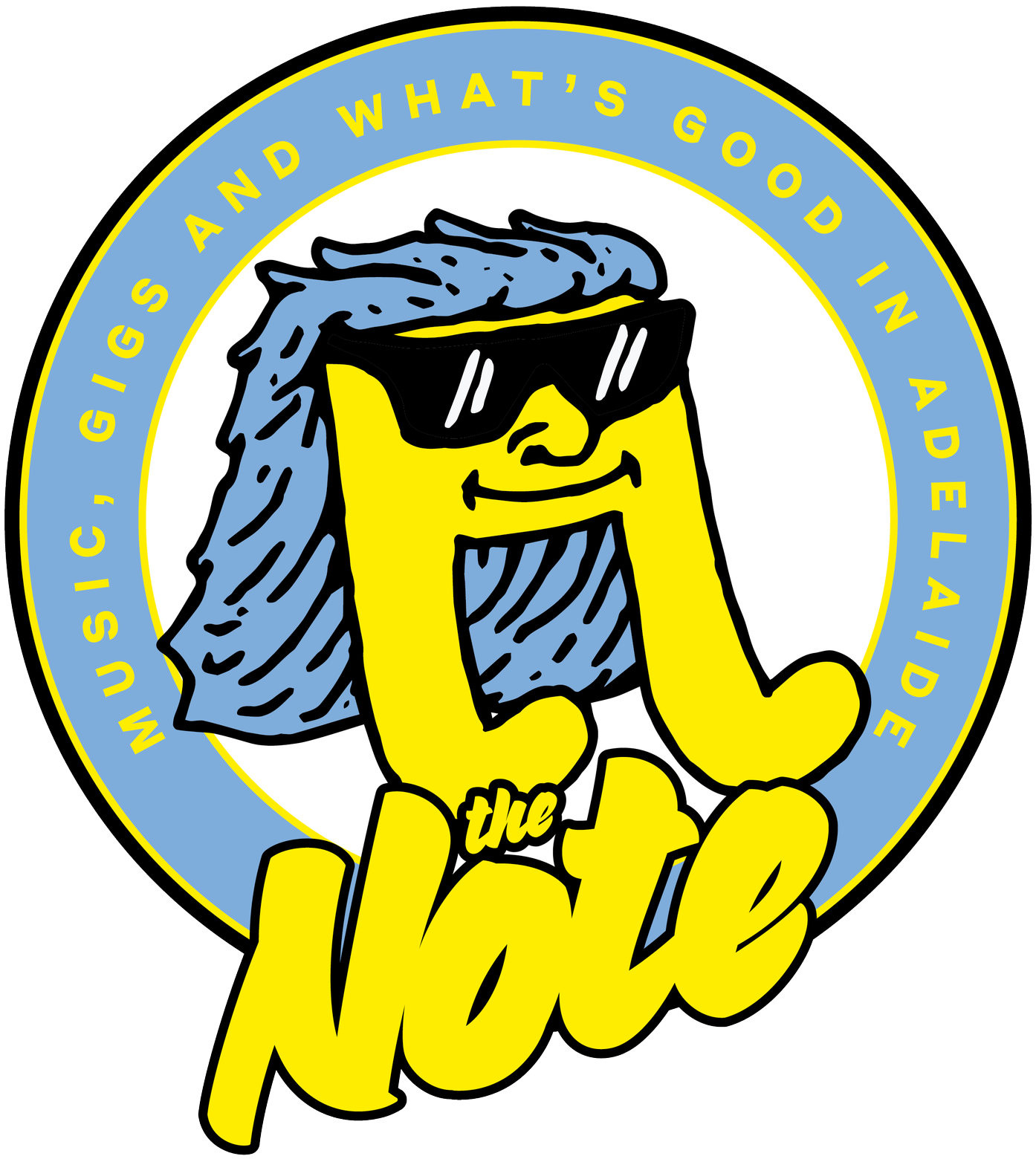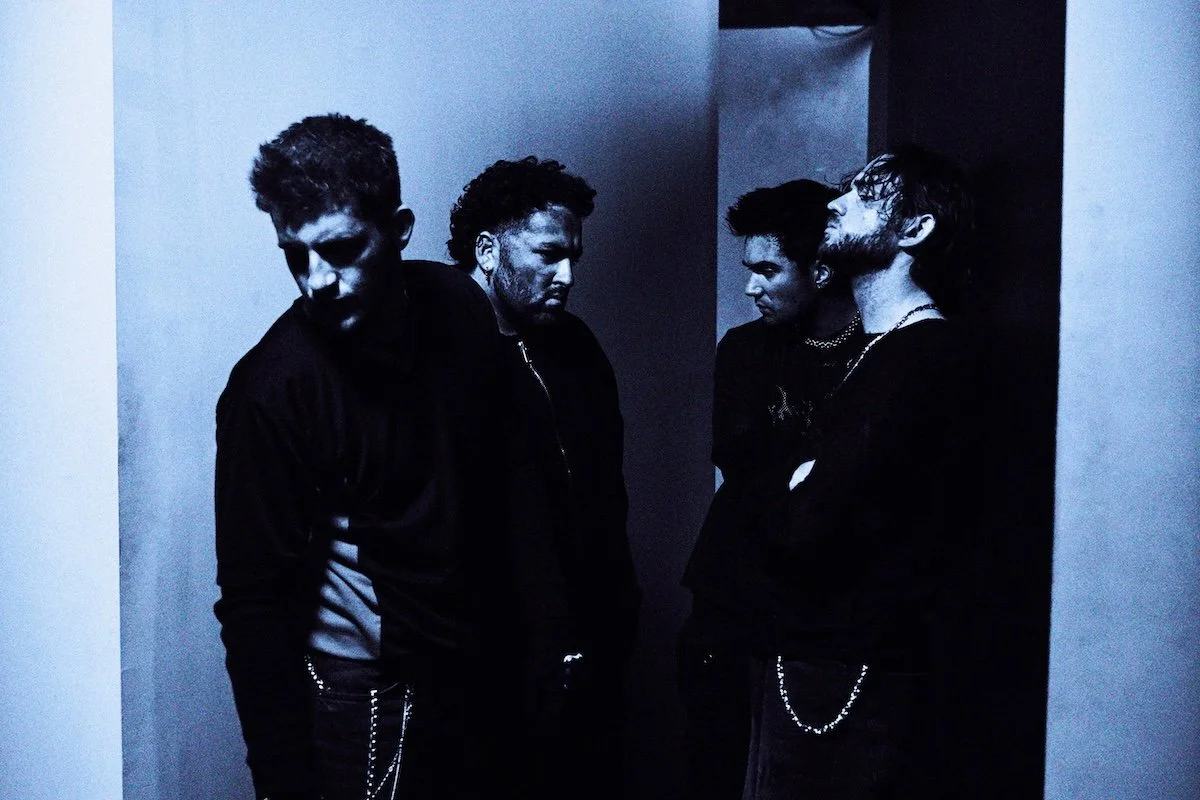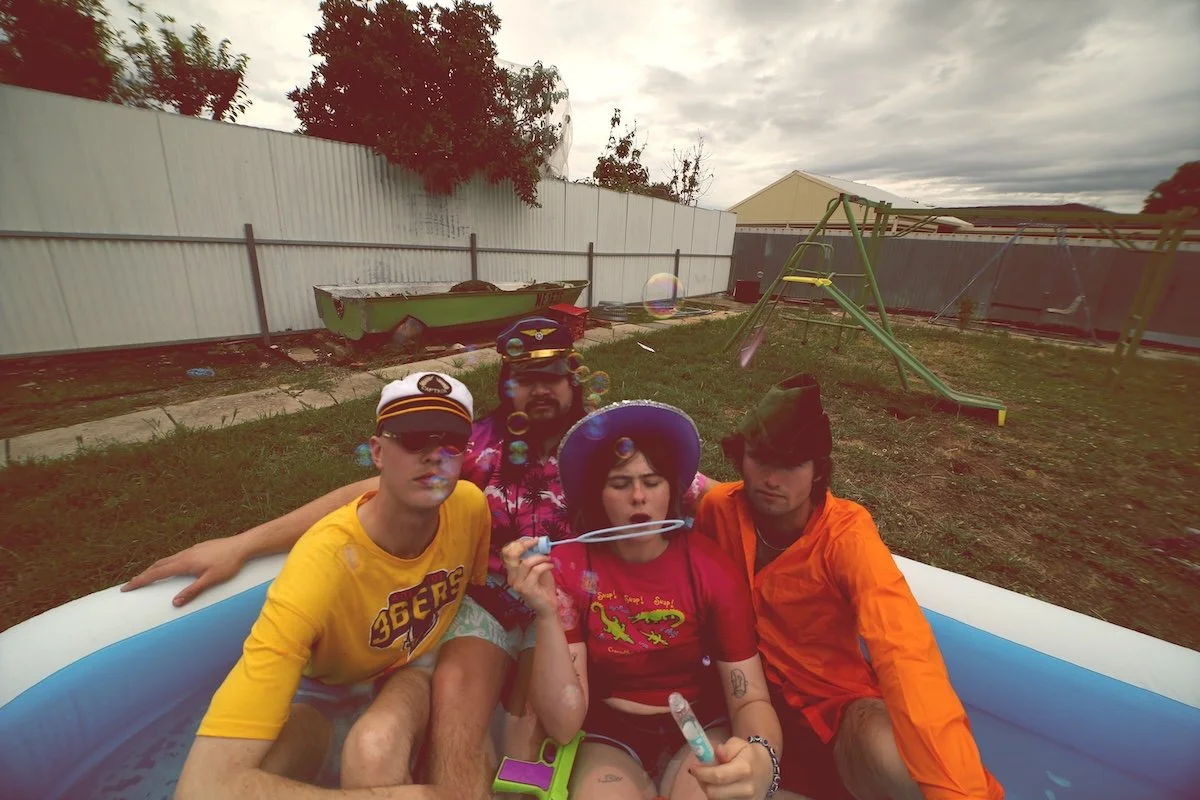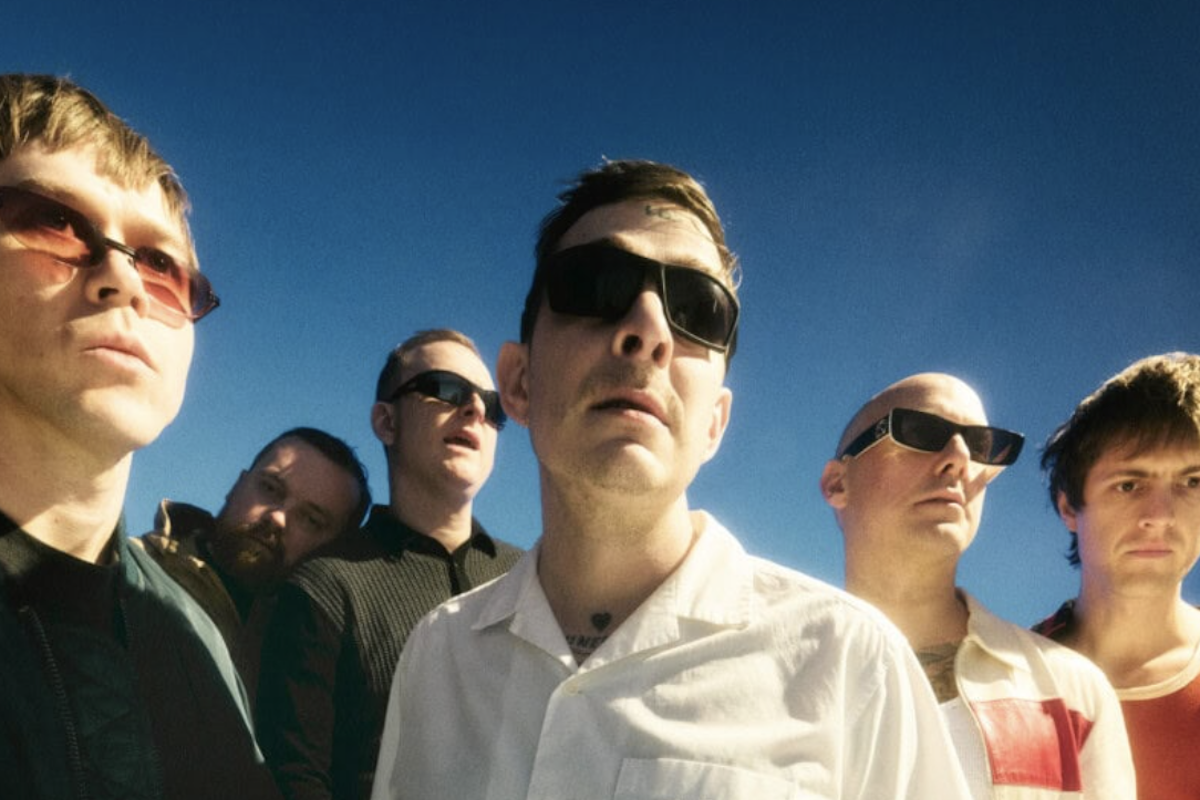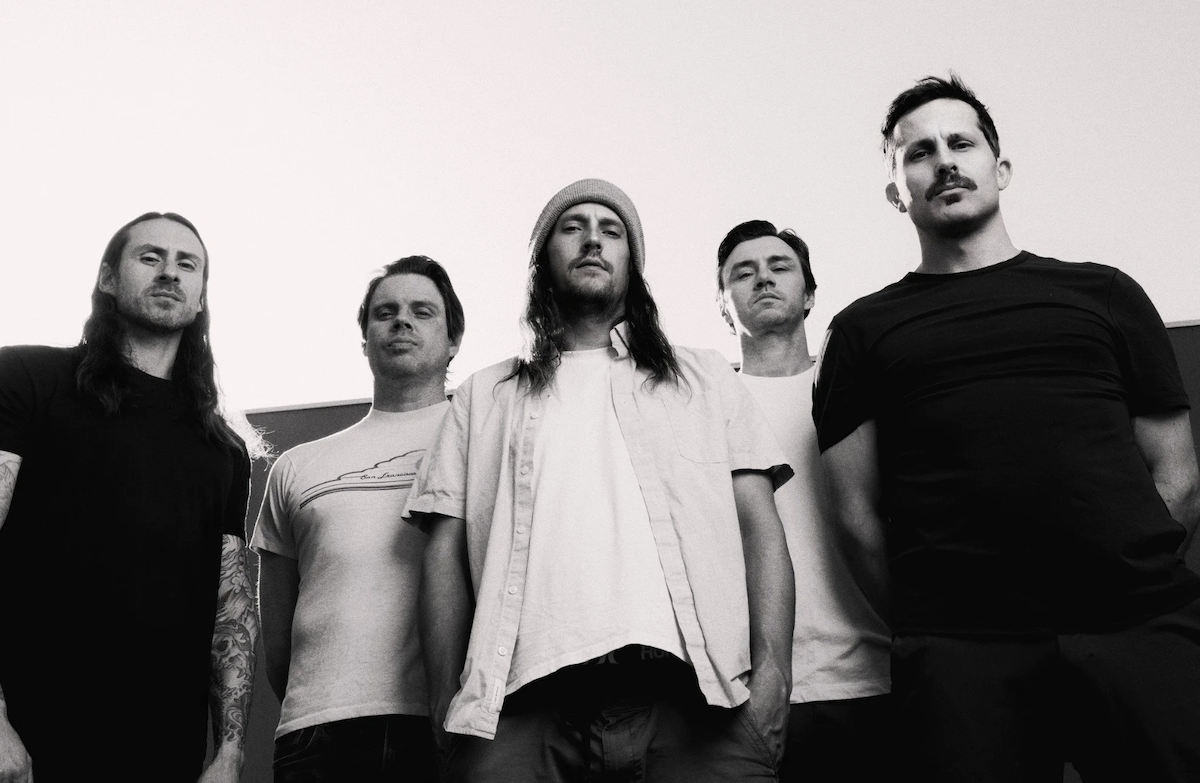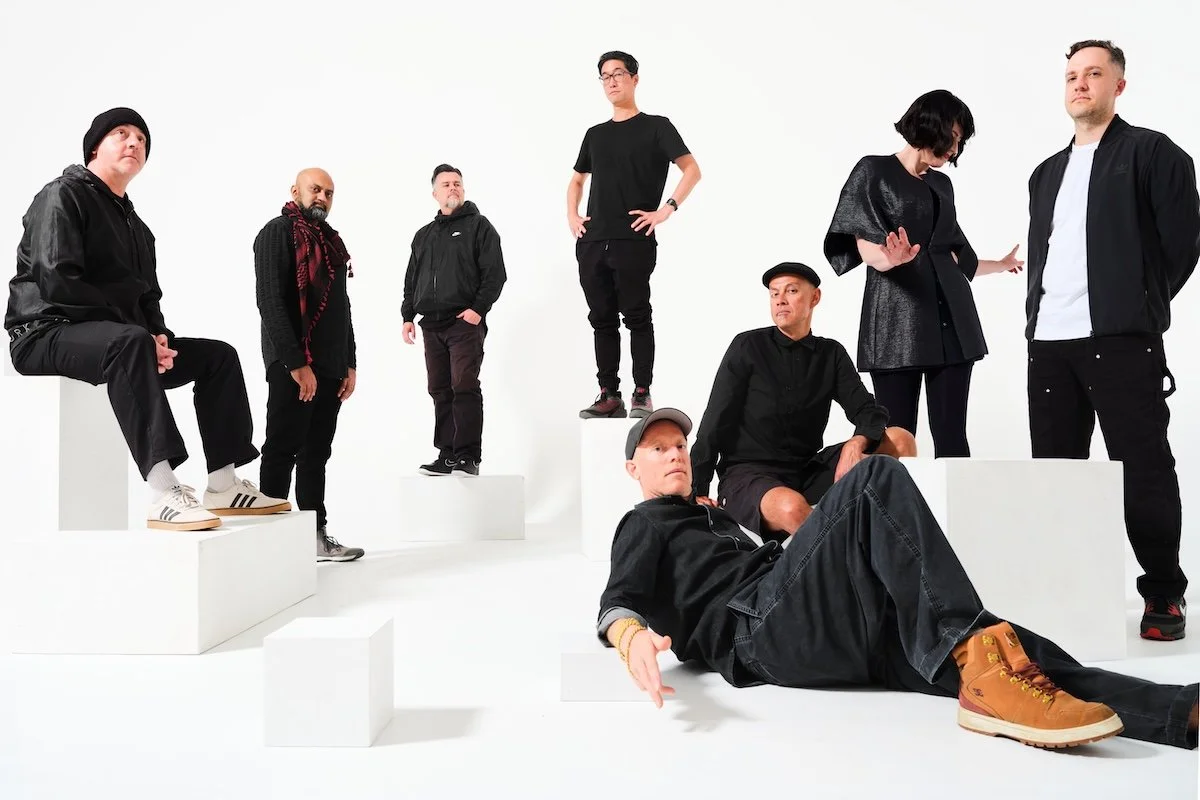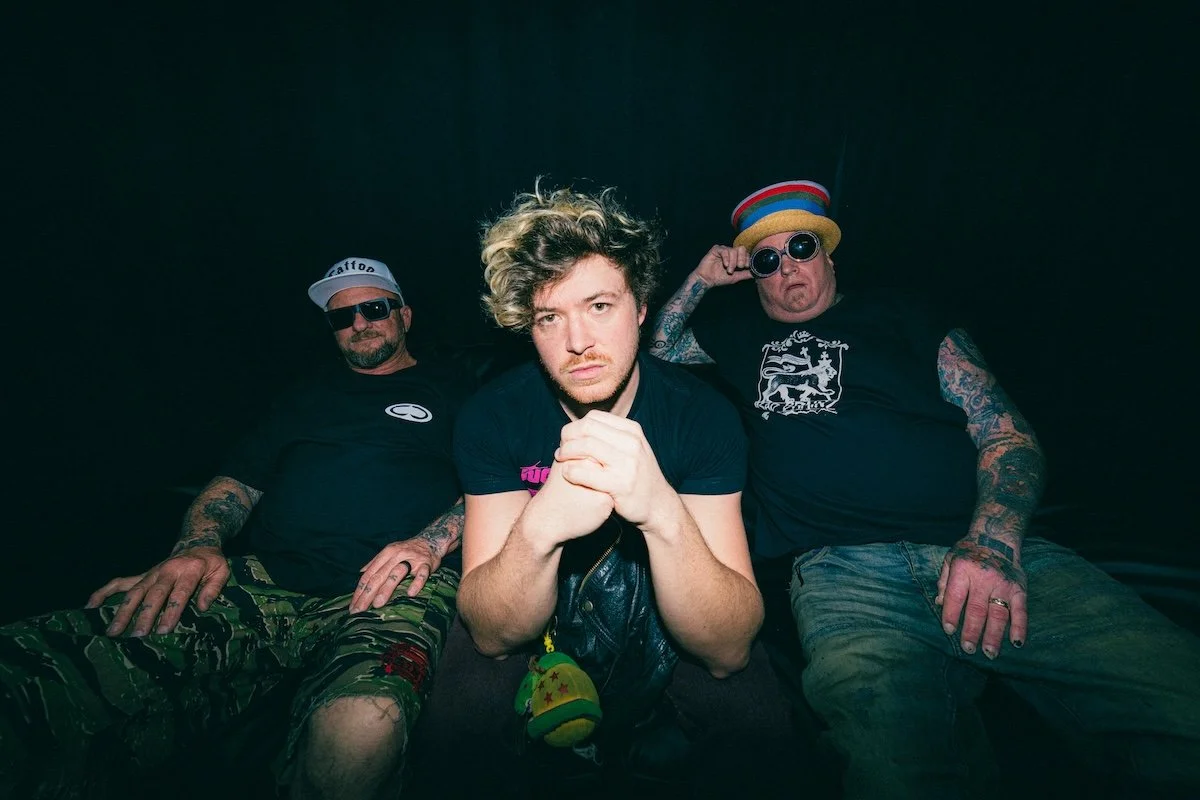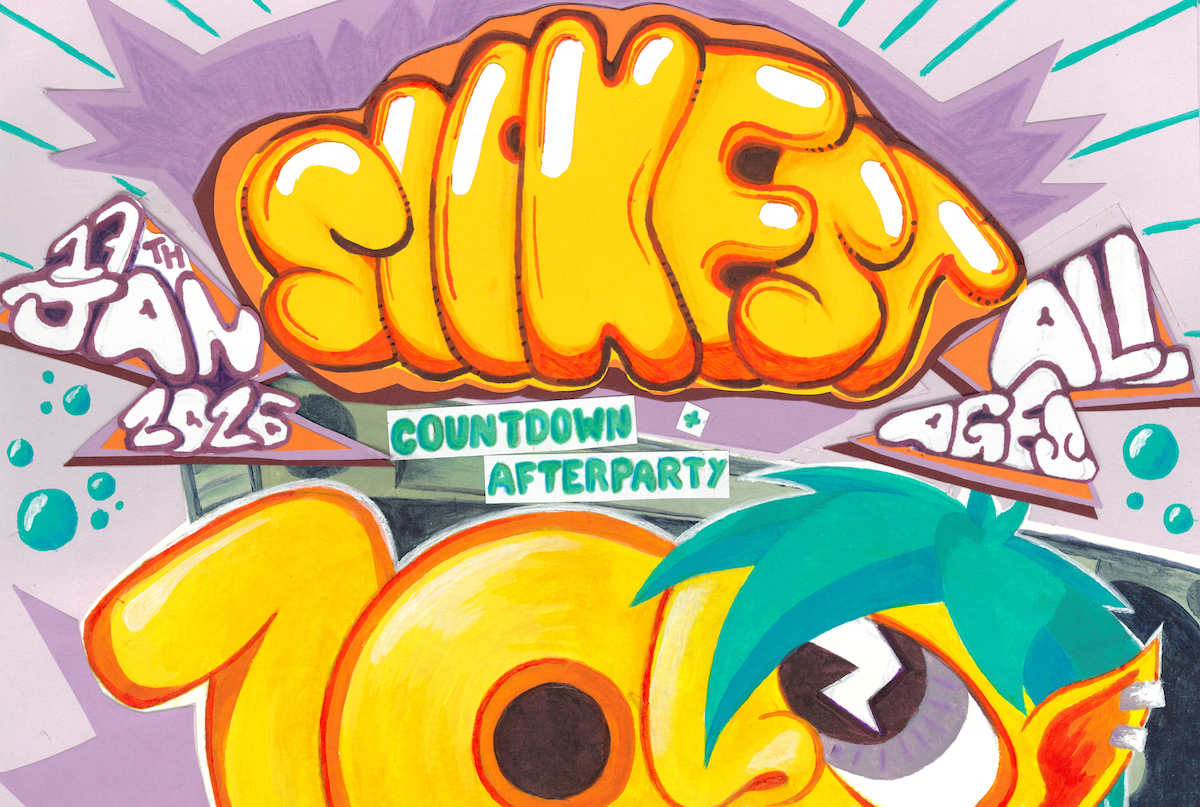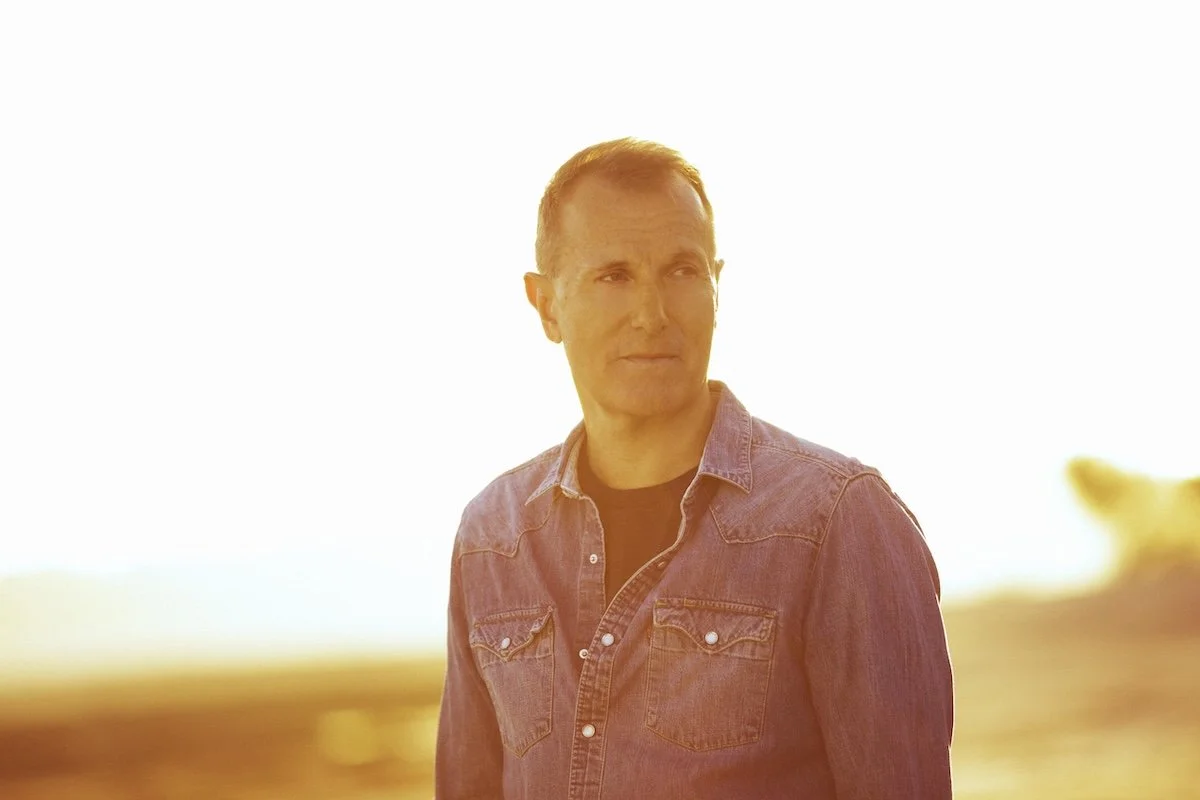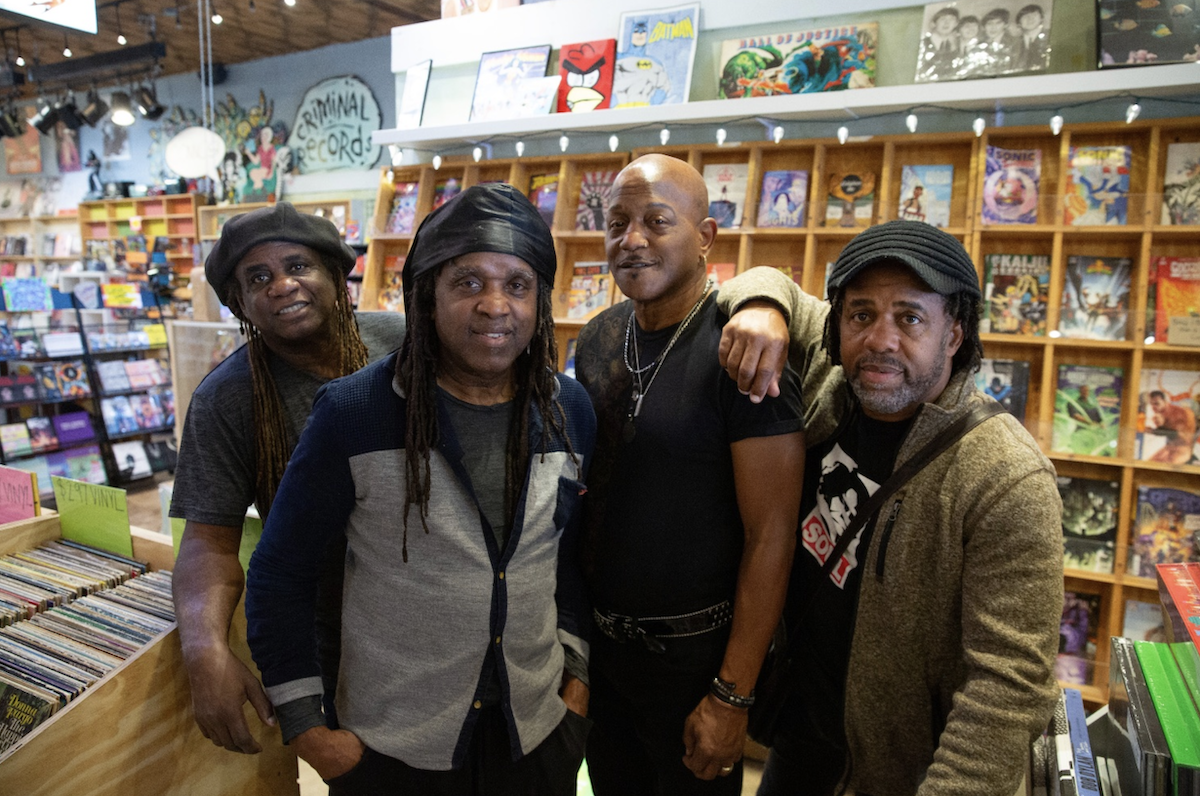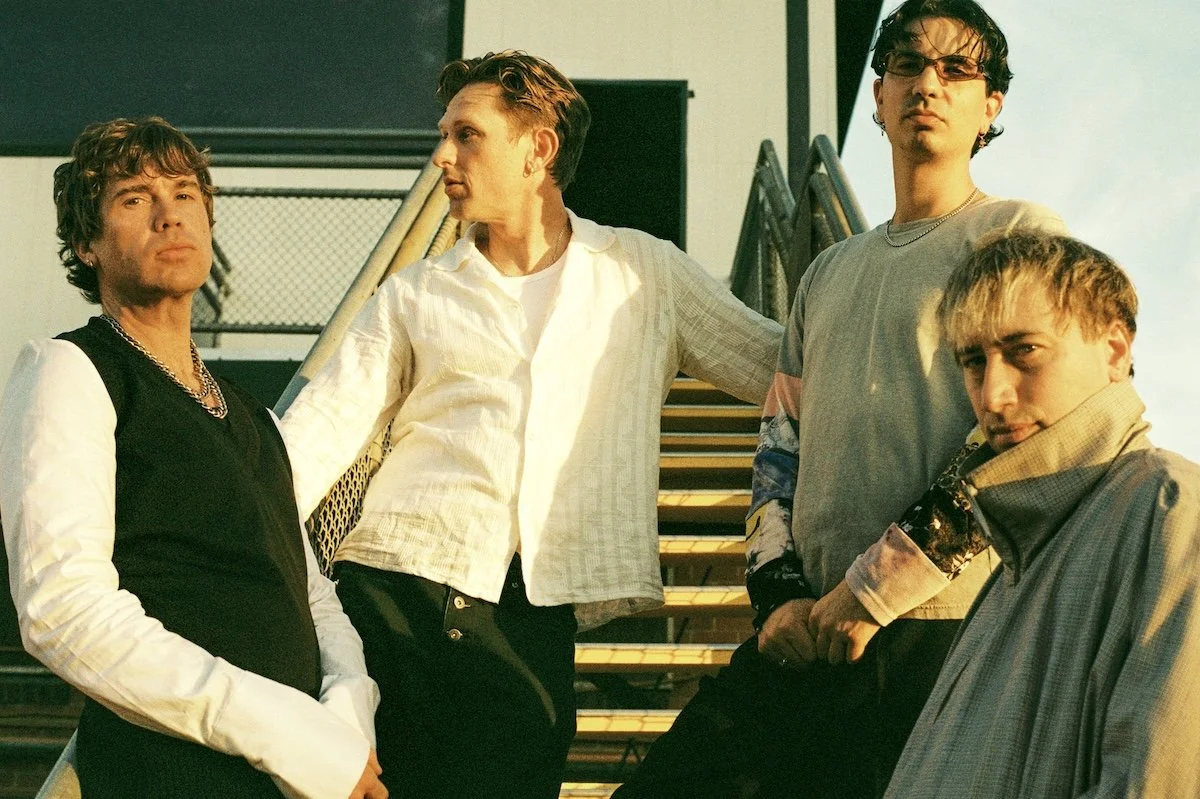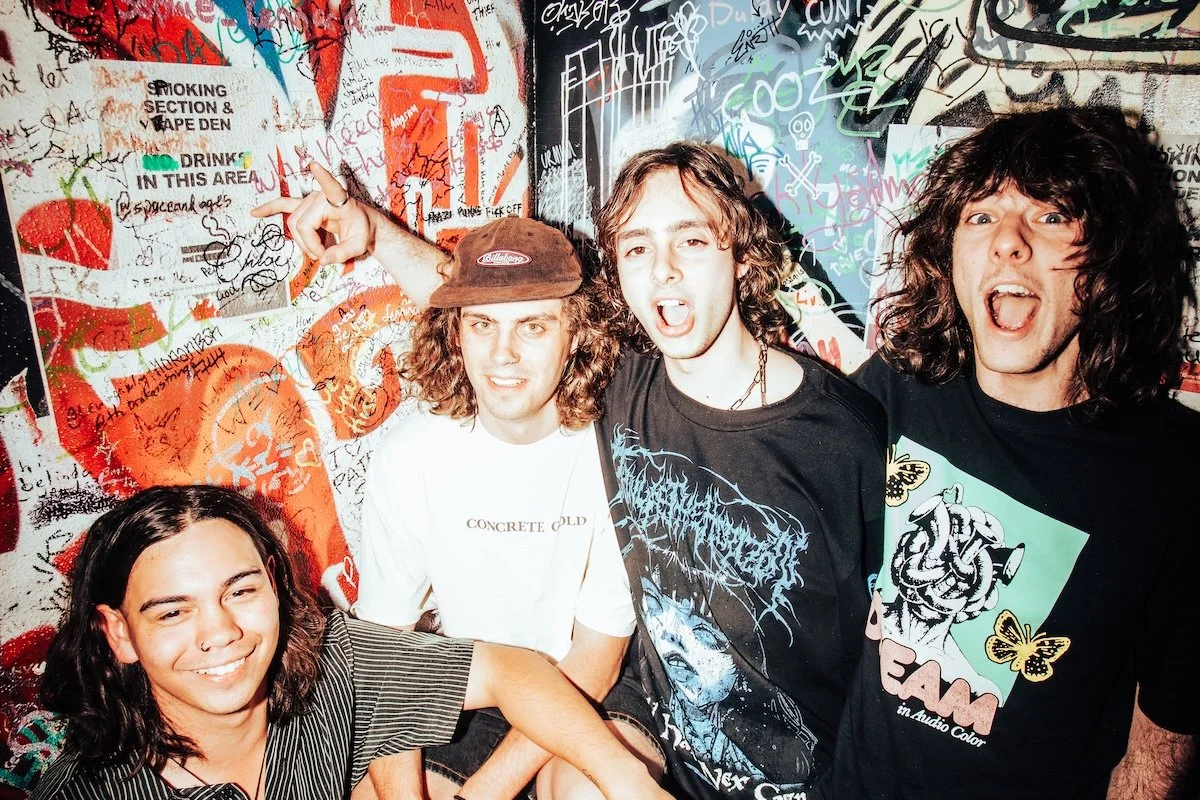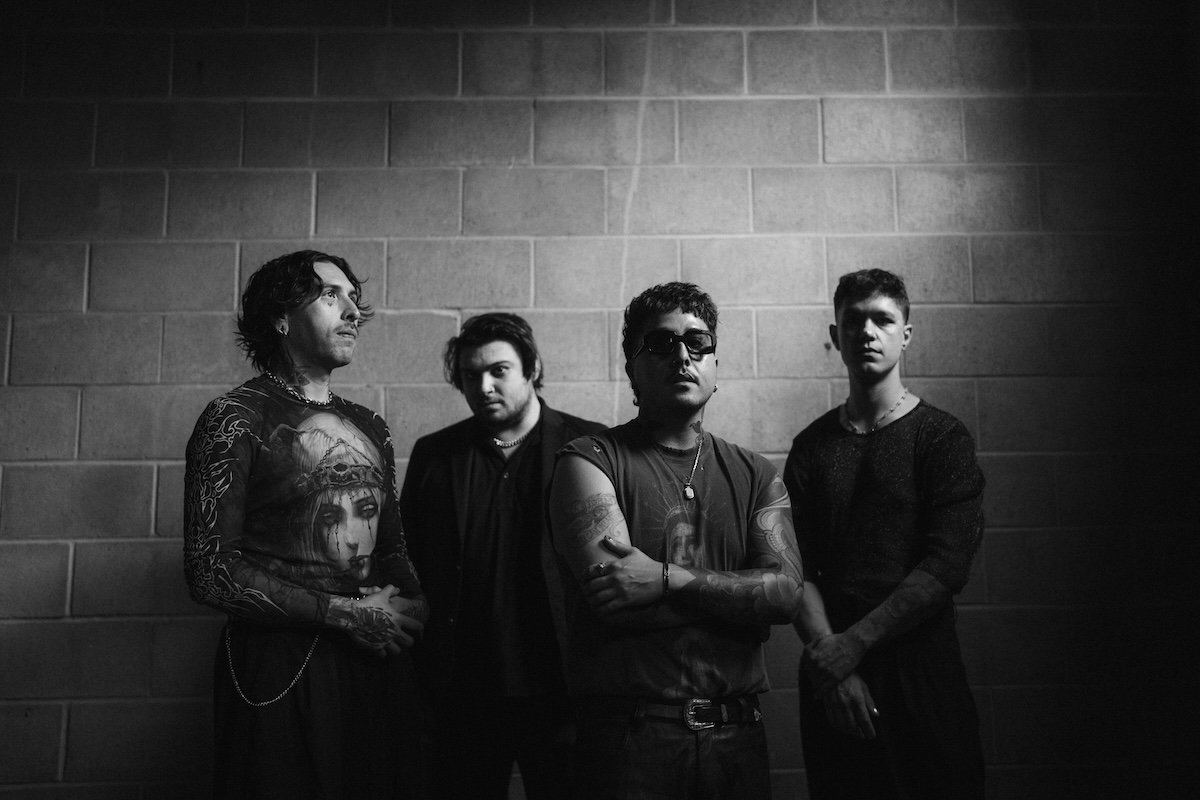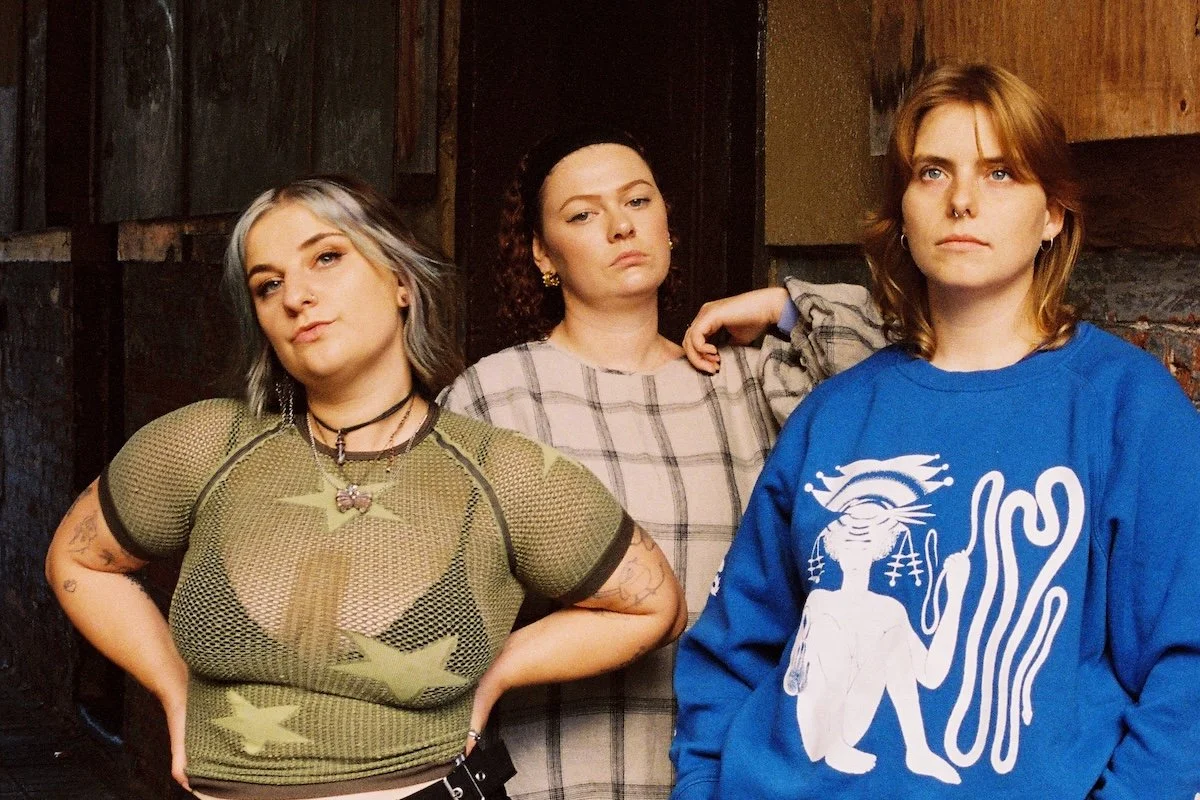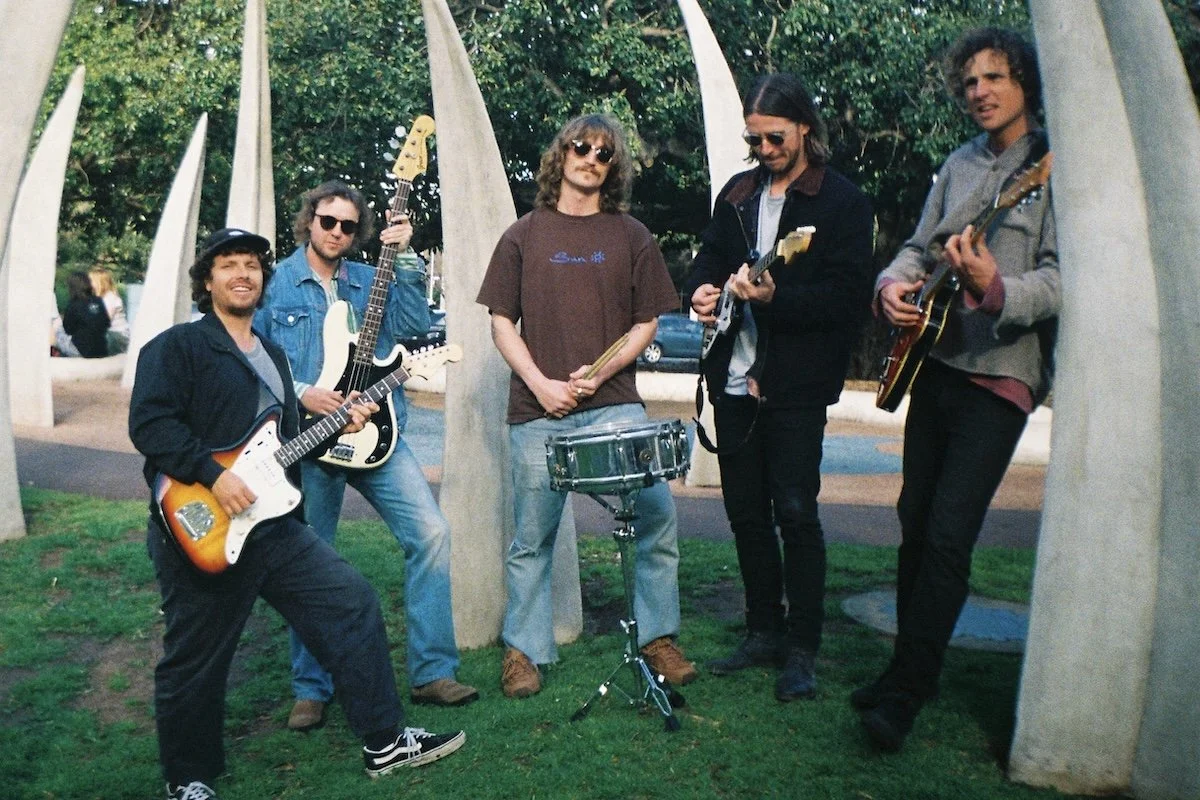SPEED: On the Right Path
Ahead of the imminent release of their new EP ALL MY ANGELS, SPEED lead vocalist Jem Siow and guitarist Josh Clayton open up about grief, brotherhood, Coachella and the compelling outsider nature of hardcore.
Words Emily Wilson // Image Jack Rudder
Controlled discordance defines SPEED’s music. Guitars are flagellated, drums are methodically battered, voices are pitched into strained growls. SPEED’s sound is dizzyingly aggressive. It is hardcore, after all.
But that gritty vigour and sonic intimidation are merely surface level. Though it might not be immediately obvious, the Sydney-formed hardcore outfit’s upcoming EP, ALL MY ANGELS, is considered and vulnerable, tender and sensitive, dealing as it does with the tragic loss of three of the band’s close friends.
“It is definitely really aggressive, intense music,” says guitarist Josh Clayton when discussing the reputation of hardcore as a genre. “And I think the natural inclination is to think that the only mood that it can portray is aggression. I think it kind of instead serves as a template of any kind of intense emotional feeling. When I think about some of my favourite hardcore records, a lot of them aren’t necessarily just records that talk about being pissed off about something; a lot of it is very emotionally vulnerable.” He cites Crown of Thorns, a hardcore band prominent in the ‘90s in New York, as an example. “Those guys are some of the most legendary psychopaths - but the lyrical content is super emotionally vulnerable. I think the contrast of the intensity of the music and the vulnerability of the lyrics is what makes the music so interesting.”
He adds, thoughtfully, “At the same time, there’s so much hardcore about self-improvement and ownership of your own narrative, and positive messages like that. So when it came to us writing a record like this, I think that the vulnerability was something we wanted to lean into, and something we wanted to explore, because we knew it would make for more interesting music thematically, but also underscoring that with the intensity of the sound of hardcore I think helps communicate that point in a stronger way.”
Given the way that they, as a band, are leaning into grief and vulnerability, is it frustrating that people tend to have this perception of hardcore as an aggressive medium?
“I don’t think it’s frustrating because I think it’s pretty logical. I totally understand why anyone who isn’t intimately familiar with the genre might make that assumption. And I think it’s also by design because the thing about hardcore is that it’s meant to be for people who understand it. That’s why it is so intense. That’s kind of a deliberate barrier to getting into it. And I think we’re quite comfortable with the idea that maybe from the outside it looks one way, but if you actually penetrate it, it is a lot deeper than it looks.”
Here, lead vocalist Jem Siow pipes up, charting SPEED’s journey, and explaining how they have attempted to channel personal tragedy into catharsis and art. “Since the inception of the band, we’ve been very grounded in what we want to communicate. We’re really championing our narrative, our identity, our story, our people. And we feel very confident in the way that we are delivering our message.”
These moments of devastation they suffered together - all the grief, confusion, and uncertainty - led, surprisingly, to an overwhelming sense of clarity. Siow feels that they have never been more lucid in the way that they are striving towards the band’s “mission” than they are now.
“Because the things that we’ve talked about in terms of sewing into each other the importance of having unconditional love for your brothers, your sisters, your friends, your family, your community, preaching acceptance, taking time to understand one another,” he explains, “these are all things that inform the relationships that we had with the people that we lost. And it just lent even more conviction to what we’ve always been about. So maybe I don’t have answers to questions like, ‘Where do people go when we lose them?’, but at least I have a lot more clarity and calm in knowing that we’re on the right path.”
READ MORE: The Used: An Anniversary To Remember
Siow confirms that this EP, slated for a late October release, has been the “most collaborative” of all their projects thus far. “I think the success in all of that is that there’s this deep sense of trust. When you’re working on something that is so creative and so personal, you have to respect each other’s vision. The result is something we’re really fucking proud of.”
So how does it feel to be releasing to all the world a project that is so tied up in personal grief?
Siow glances into the middle distance, considering. “It took me a while personally to accept that your art is in the hands of others. You cannot control every part of your narrative… With the experience of this band becoming a global thing, people you don’t even know having some kind of perception of who you are and what you’re about…”
He trails off and then builds confidence. “I don’t expect the person who’s sitting in Queens, New York, on the other side of the world to fully understand what we’re about. Because, like, I’m a Chinese-Malaysian-Australian flute player who loves to lift weights. I don’t expect someone on the other side of the world to fully get the complexity of my story. But that’s also kind of the beauty of the whole process. I think in this current day and age, a lot of people expect to have everything laid out to them simply… but the reality is that human beings in the world are so much more complex than that, and I like to be reminded of that.”
The ARIA-winning band is renowned as a live act. There is an uninhibited physicality to the band’s live performances, a sense of overwhelming communion delivered to a sea of frothing fans. Siow describes playing shows as “this huge unbridled sense of release. The passion, the energy, the emotions, in the moment - it’s so unadulterated.”
Clayton adds, “When we’re creating the music, it’s kind of formulating a concept we want to communicate, and then the live show itself is the actual process of getting to communicate it, and getting the feedback for that idea in real time. In that sense, it has a more kind of tangible, direct reward.”
Siow says that the comparison between songwriting and performing is akin to the comparison between cooking and eating. “I love the process of cooking. But for me, my favourite part is eating with my friends and getting to see them being stoked about the food, you know what I’m saying?”
Earlier this year, the band became the first Australian hardcore act to perform at Coachella. In fact, Coachella actually marked the first time the band had played a non-heavy show.
“I will say it was harder work than I expected,” Siow admits of the experience. “When we play in our natural habitat, people know what to expect, so the energy is really in tandem.” But he describes playing Coachella as an exciting opportunity to introduce people to “a subculture that means so much to us.”
Clayton expands on this: “The nature of Coachella is that you’ve got a revolving door of people coming in and out, catching a couple of songs and then walking out, so you don’t get to build the rapport you do normally. So in that sense, it was for sure a very unique show for us.”
If playing Coachella is any indication, SPEED is often positioned as being a leading example of Australian hardcore. What does that label, that reputation, mean to them?
“I think part of what makes hardcore what it is is that it’s outsider music,” Clayton says. “You deliberately separate yourself from the rest of the musical world. It’s a niche subculture. And I think in the context of Australia, that’s even more extreme. All of the history of hardcore comes from North America, and in Australia, it took a little longer to catch on. So in that sense, it’s always been super overlooked. And it’s given us this massive underdog mentality. What SPEED has been able to do in terms of being able to go to America and Europe and other parts of the world is quite unprecedented, and I don’t think it’s something that any of us ever really expected when we started the band. So I think our attitude when we started the band is similar to what most people in Australian hardcore feel: there’s never going to be any recognition outside of this community, so we just have to feed into that instead, build this for ourselves... And I think that’s still the way that people feel about hardcore - that it’s for us and that’s all that matters to us, you know what I mean?”
Siow adds, poignantly, given the nature of the upcoming album, “The thing about Australian hardcore…I just see the image of my best friends.” He manages to flash a smile.
ALL MY ANGELS by SPEED arrives Friday 23 October via Last Ride Records in Australia and Flatspot Records in the US.
